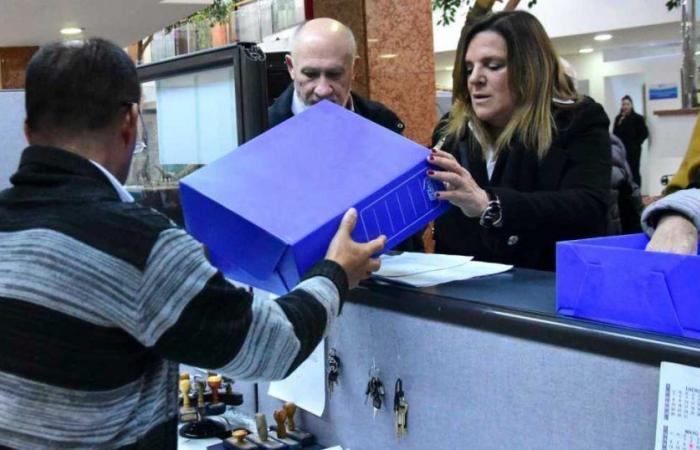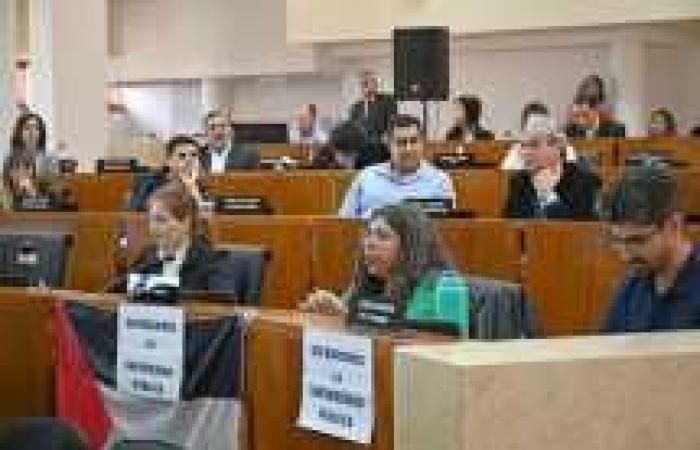“We came this way after a long road in which we were denied citizen participation,” said Juan José Dutto, former Ombudsman of the city at the time of presenting more than 5,000 signatures from registered residents in the capital of Neuquén to repeal the so-called Calf ordinance, which included in the electricity consumption bill, items for debt collection with CAMMESA and the ecotax.
As he explained, the work was carried out together several internal CALF groups and self-convened groups of partners of the cooperative that question the collection of rates and debts with the summary of electricity consumption and that They joined forces in the group they called “integrated by CALF.”
After 10, at the ticket table, They presented signatures that endorsed a popular initiative. The modality allows residents to present an ordinance at the municipal level as long as they achieve at least one 1.5% of signatures from the last electoral roll.
The initiative was madeto the repeal of the ordinance 14,645, which included charging users for 8 years for Cammesa’s economic claim to CALF, in addition to the rate to finance the new Neuquén Environmental Complex (CAN rate or ecotase), which exceeds 4,000 pesos per month.
This Thursday at 11 there will be a session in the deliberative and the ordinance by popular initiative pcould take parliamentary status, and then be referred to the commission of legislation or public services.
Councilors have 180 days to discuss it and vote on it. It is the second project presented to repeal the so-called CALF ordinance. The left presented the repeal of the controversial ordinance passed on November 30, but did not achieve political agreement for the treatment in committee, let alone take it to a vote in the chamber.
“We may possibly get more signatures” in the coming days, Dutto added. He explained that the Deliberator must then corroborate the signatures presented, they have one month to process the petition and then 180 business days to process the ordinance. “They don’t necessarily have to take all the time, that’s what the regulation of an ordinance that is presented by popular initiative proposes,” he recalled.
He added that he formed “integration by CALF” after various refusals that there was in the Deliberative Council to access the citizen participation mechanisms that are provided for in the Organic Charter. «The citizen’s bench was requested and was denied; the request was madepublic hearing to debate this issue, and it was denied,” he explained.
He added to the list of rejections the initiative of Priscila Otton (from the Left) to achieve a office without other political support and the rejection last May of the project presented by the Community Councilor, Laura Pérez, pato reactivate the City Planning Advisory Council.
“They have the obligation to treat it,” Dutto recalled.
The “CAN rate” started with a value of 3,114 pesos when it was implemented in March, but then tThere was a 41% increase because as it is part of the municipal rates, it will be updated for inflation, like the rest of the city’s taxes, every 3 months. More than 90,000 users pay the CAN rate with their electricity consumption, to which is added Cammesa’s debt payment installment, close to the 3,000 pesos.
The amount of the Cammesa debt installment was determined with readjustments every 6 months, so it will be updated shortly. In the case of retirees or people with disabilities, they have the opportunity to reduce the rate to 50%, as long as they carry out the procedure in the undersecretary of Public Revenue of the city.









